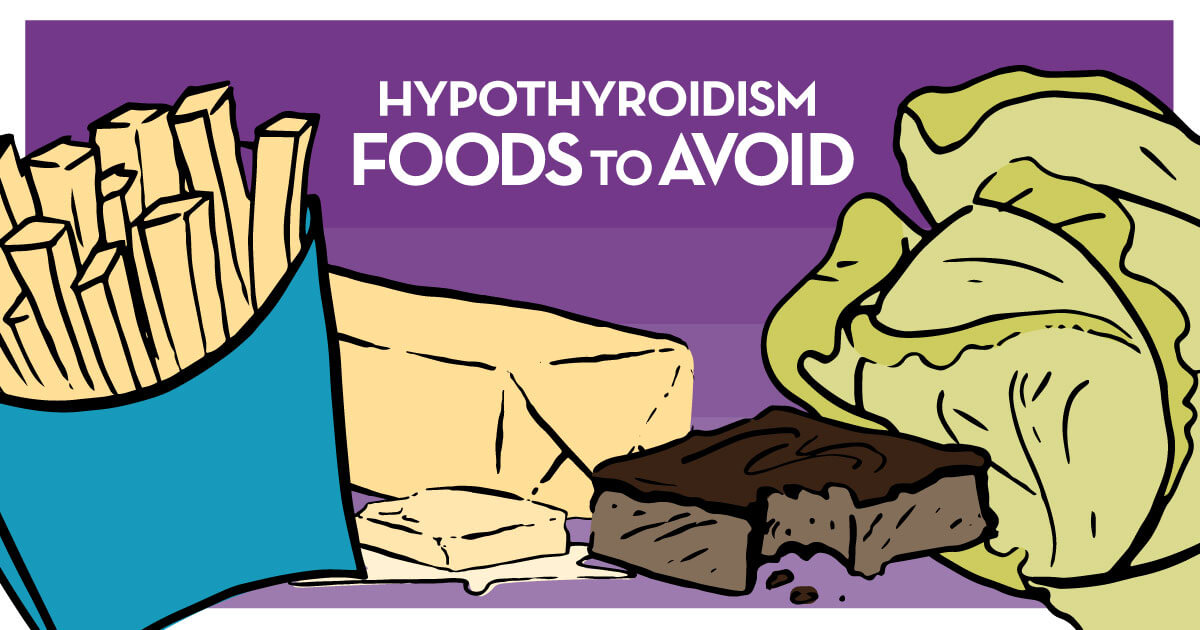Everything You Need to Know About Hypothyroidism

Hypothyroidism is the medical term for an underactive thyroid gland. In hypothyroidism, your thyroid doesn’t produce enough of certain hormones that are essential to good health.
Fortunately, doctors can diagnose and treat hypothyroidism successfully. And by knowing a little bit about the condition and its symptoms, you can help your doctor detect it.
What Is the Thyroid Gland and What Does It Do?
Your thyroid gland is located low on the front side of your neck. It produces and releases hormones that affect nearly every part of your body. This includes everything from your skin and muscles to your brain and heart.
These hormones control your metabolism — meaning how cells in your body use the energy you get from food. Your metabolism affects how well you burn calories and functions related to energy use, like your body temperature and heartbeat.
If your thyroid’s output falls below what your body needs, your metabolism and body processes slow down as a result. And the decrease in energy production creates problems throughout your body.
Take Control of Your Health
Staying at a healthy weight is one of the best things you can do for your long-term health. Learn how weight can impact your quality of life, and discover your healthy weight range by taking our free healthy weight range assessment. Start the online assessment today.
What Are the Symptoms of Hypothyroidism?
Hypothyroidism tends to develop over many years, and its signs may not be noticeable at first. But as the condition progresses, it produces a wide variety of symptoms, including:
- Unexplained weight gain and/or trouble losing weight
- Elevated cholesterol
- Fatigue
- Memory problems
- Dry skin
- Constipation
- Menstrual cycle changes
- Joint problems like swelling, stiffness, and pain
- Muscle weakness, stiffness, and aches
- Depression
- Dry hair and hair loss
- Increased sensitivity to cold
- Facial puffiness
- Hoarse voice
- Slow heart rate
- Carpal tunnel syndrome
- Goiter (thyroid gland swelling)
People of any age or gender can experience hypothyroidism, but it most often affects middle-aged or older women. If the condition develops in infants, the symptoms include:
- Jaundice (yellowing of the whites of the eyes and the skin)
- Breathing difficulties
- Large, swollen tongue
- Umbilical hernia
- Constipation
- Excessive sleepiness
- Low muscle tone
- Stomach bloating
- Hoarse cry
- Poor feeding habits
- Slow or no growth
Many of the symptoms of hypothyroidism — both in adults and infants — can be caused by other conditions, but your doctor or your child’s pediatrician can determine what the cause is and how to treat it. Particularly in children, you should talk with a healthcare professional as soon as you notice symptoms.
What Causes Hypothyroidism?
A condition called Hashimoto’s thyroiditis is the most common cause of hypothyroidism. It’s an autoimmune disorder in which the body mistakenly produces antibodies that attack, damage, and ultimately destroy the thyroid gland. Viral infections can also damage the thyroid.
There are several other causes of hypothyroidism, as well, including:
- Pregnancy
- Congenital hypothyroidism, which is present at birth
- Lack of iodine in the diet
- Surgery to remove some or all of the thyroid
- Radiation therapy in the neck area, such as in cancer treatment
- Radioactive iodine treatment to address hyperthyroidism (an overactive thyroid)
- Certain medications for treating cancer, psychiatric disorders, heart problems, and other conditions
- Problems with the pituitary gland
- Problems with the hypothalamus (an area of the brain)
In addition, an issue with the thyroid gland itself can result in what’s called primary hypothyroidism.
How Is Hypothyroidism Diagnosed and Treated?
Doctors can detect and successfully treat hypothyroidism and doing so is important not only to eliminate the symptoms listed above but also because of potential complications from the condition. These include heart problems, infertility, congenital disabilities, mental health issues, goiter, myxedema (a rare, life-threatening condition caused by long-term, untreated hypothyroidism), and peripheral neuropathy (damage to nerves in the arms and legs).
If your doctor suspects you have hypothyroidism, they will order blood tests to check for the level of thyroid-stimulating hormone (TSH) and, in some cases, a thyroid hormone called thyroxine. These tests are effective even in the early stages of hypothyroidism.
If you have hypothyroidism, your doctor will probably prescribe a synthetic thyroid hormone called levothyroxine, which you will take every day going forward. They will also check your TSH level every year and adjust your medication accordingly.
You’ll likely experience an improvement in your symptoms soon after you start your medication, including a decrease in your cholesterol level and potentially a reduction in your weight.
If you have symptoms of hypothyroidism, make an appointment with your Baptist Health physician. If you don’t have one, you can find a provider near you in our online directory.
Next Steps and Useful Resources
Find a Provider
The Link Between Hypothyroidism and Weight Gain
What’s The Difference Between Hypothyroidism and Hyperthyroidism?
Hypothyroidism & Six Foods to Avoid



